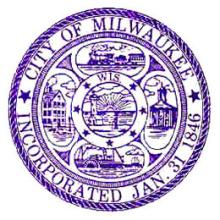
Fast, affordable Internet access for all.

A recent article by Chloe Morrison on Nooga.com, highlighted the inquiries and envy from all over the globe about Chattanooga's awesome community fiber network. According to Rick Barrett of the Journal Sentinel, Milwaukee is one of many admirers with wandering eyes that keep taking a peak at Tennessee. No wonder! The "Gig City" has set the gold standard for connectivity. Additionally, the city has cleverly capitalized marketing the opportunities to spread the word about their network and to attract more economic opportunities.
Collaboration is the popular theme that is associated with development. When looking back in Wisconsin, collaboration seems rare to find. We have reported extensively on AT&T's attempts to instigate discord, drag out legal proceedings, and fatally halt the possibility of community owned broadband in Wisconsin. If the Badgers want to compete in the digital economy, as they claim they do, they will have to stop listening to the big cable and DSL companies:
Only a few Internet users, such as a hospital or a large company, would currently benefit from the full capabilities of a gigabit network that can move large amounts of data at incredible speeds. It's like buying a Jaguar when a Ford Focus would be perfectly adequate, said Andrew Petersen, spokesman for TDS Telecom in Madison. (from the Barrett article.)
We have all read this tired comparison before and it still seems silly from a technological perspective. Planning for the future is critical when investing in essential infrastructure. Technological advancement moves at a fast pace, rather than an adequate pace.
Consider this assage from the Nooga article and consider how many of the benefits of a next-generation networks TDS would actually care about:
“The benefits are far-reaching—everything from a significant boost to economic development (new businesses locating here), millions of dollars in cost savings to businesses each year (by reducing lost time and productivity caused by power outages), attracting top talent in the technology industry to live and work in Chattanooga, the added conveniences to residents’ personal and work lives, etc.,” Dwyer said.
According to a corporate site selection survey, high-speed Internet and cost-efficient energy availability rank in the top five site selection factors that business leaders consider, which puts Chattanooga in a “niche position” because of its infrastructure, she said.
And according to a report done by Dr. Bento Lobo from UTC, the net benefit to the county is nearly $1.5 billion, plus the creation of about 3,716 jobs.
“This ends up being a net benefit of about $3,500 for every resident in the county,” she said.
Why would TDS care about the net economic benefit to the county? These are savings and benefits that would not significantly improve TDS's bottom line - the benefts accrue to everyone else.
"It's like being the first city to have fire," said Chattanooga Mayor Ron Littlefield. "We don't know all of the things we can do with it yet, but we have something that no one else has, at least to this degree." (also from the Barrett article)
The people of Milwaukee might like to have some of that fire to keep them warm, like their neighbors, Reedsburg. At this writing, Wisconsin state law creates high hurdles for local governments to create their own networks. Perhaps, with more attention in the Sentinel and other Wisconsin media, sparks of discussion can ignite a similar fire in Milwaukee.
